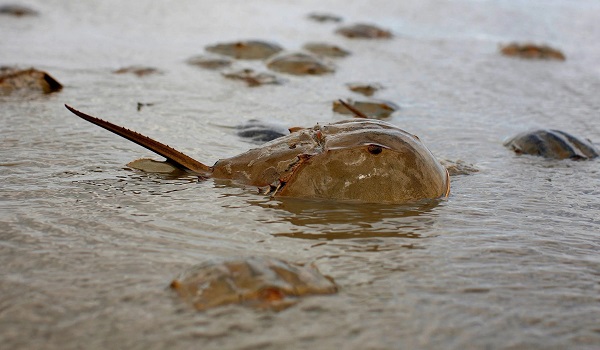The National Oceanic and Atmospheric Administration , an environmental group of America, has filed a petition with the US government demanding the conservation of horseshoe crabs.
Key points
- The petition said that pharmaceutical companies use the blood of horseshoe crabs in large numbers in the medical field, which leads to the death of about 30% of the crabs.
- At present the number of this crab has reduced much compared to 1990.
Other danger
- This crab is also used as commercial fish feed.
- This species is facing habitat loss due to marine pollution, coastal erosion and increasing global warming.
Suggestions for conservation
- Strict action should be taken against any person/organization involved in illegal hunting.
- Their habitat should be protected.
- Its commercialization should be banned.
Horseshoe Crab
- Its scientific name is Limulidae.
- This crab is classified in the marine arthropod phylum.
- It is one of the oldest surviving creatures on Earth, about 450 million years old.
- The body of this crab looks like a horseshoe.
Importance
- The blood of these crabs is considered very important in the medical field.
- The blood cells obtained from their blood react chemically with the harmful elements present in the medicine, which helps in knowing whether the new medicine is safe for humans or not.
Habitat
- It is found on the mid-Atlantic coast of America and the Delaware Bay.
- In India it is found on the coast of Odisha.
Conservation status
- In IUCN Red List:- Endangered Species.
- In the Indian Wild Life (Protection) Act, 1972:- Included in Schedule IV.
- National Oceanic and Atmospheric Administration
- It is a scientific and regulatory agency within the United States Department of Commerce.
- It is headquartered in Silver Spring, Maryland.
- It was established on 3 October 1970.
Agency functions
- To predict the weather.
- Monitoring marine and atmospheric conditions.
- To manage deep sea exploration and fishing.
- Marine Mammals and Endangered Species in the Exclusive Economic Zone of the United States. Managing the protection of species etc.

